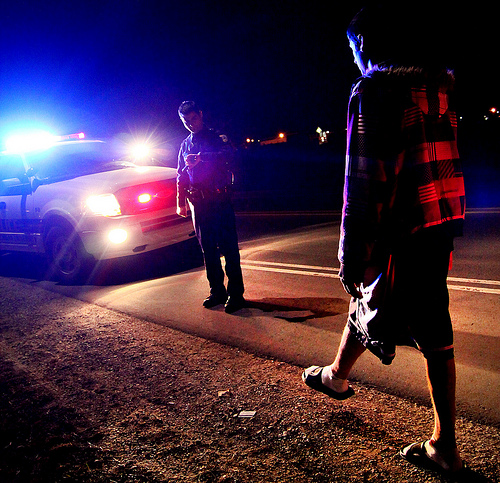Proving that cracking down on drunken driving is one of the few issues capable of garnering bipartisan support in our state capital, a group of four lawmakers – one Democrat and one Republican from each chamber – have joined Gov. Jay Inslee to craft a package of proposals aimed at reducing DUI-related fatalities in Washington. According to one member of the group, Rep. Roger Goodman, D-Kirkland, the bipartisan coalition met with Inslee or his aides at least twice last week to hammer out the details.
Goodman says some of the ideas on the table included making DUI a felony on the third or fourth conviction instead of the fifth, extending the use of interlock devices on cars of people facing DUI charges, mandatory arrest and jail time for DUI suspects (as is done in domestic violence cases), and allowing for the use of sobriety checkpoints.In a rare move, and thanks to what Goodman calls “aggressive leadership” from Inslee, two identical bills were dropped Sunday that spell out which ideas made the cut and which didn’t. Adding to the previously introduced HB 1482 (which modified provisions addressing drunken driving in state law), the House’s HB 2030 and the Senate’s SB 5912 each call for ignition interlock devices be installed on vehicles impounded after a DUI arrest. To facilitate this, the bills require the arrest of anyone police suspect of DUI — an approach modeled after current domestic violence laws. According to Goodman, this approach is designed to speed up the typically slow wheels of justice, allowing judges to require the ignition interlock devices to be installed while the car is still impounded. Without the mandatory arrest, Goodman says, that’s not possible. It takes a judge determining probable cause in such situations to make it happen, which the mandatory arrests would allow for.Goodman says if such an ignition interlock law had been on the books, the recent DUI tragedy in Wedgwood – where a suspected DUI driver plowed into four people, killing two and leaving a mother and her newborn hospitalized in critical condition – may have been avoided.“We need to close that dangerous window,” says Goodman of expediting the process of ignition interlock installation.In addition to these two major changes, Goodman says the new DUI bills also allows cities to establish DUI courts (a power currently only given to counties), create what’s being called the “24/7 Sobriety Program” for offenders (an idea modeled after a similar effort in South Dakota) and would prohibit those with three or more DUI offenses from purchasing or being served alcohol for ten years – through new specially designed driver’s licenses.“I’m very pleased,” says Goodman of the legislation that emerged. He says the state House has “almost reached consensus on all provisions,” included in its version of the bill.“We’ve made a lot of progress, but the tragedies continue,” says Goodman of the need for tougher DUI laws. “We need them to stop. This package will be another major stride forward.”But while everyone seems to agree that more can (and should) be done to prevent DUI-related fatalities on Washington’s roads, that doesn’t mean every aspect of the new DUI bills are being greeted with applause. Specifically, the ACLU of Washington – which successfully lobbied against sobriety checkpoints and reducing the number of DUI offenses it takes to reach the felony level – has significant concerns about the legislation that emerged from the process, including questions about provision instituting mandatory arrests of all DUI suspects and the amount of resources allocated for alcohol treatment.“Unfortunately I think the element that’s missing from both bills is not putting money toward treatment,” says ACLU of Washington Legislative Director Shankar Narayan. “They both seem to be a general grab bag for ratcheting up penalties.”
In a letter sent to lawmakers April 11, Narayan detailed the ACLU’s concerns.“Washington has been historically successful among states in reducing the incidence of DUI for a number of years, in particular through the efforts of our legislative leadership. But because we have been so successful, we have already implemented measures that will deter most of our populace from engaging in DUI—in other words, those making rational decisions who will change their behavior based on legal deterrents,” wrote Narayan.“What we are now dealing with is a core group of individuals who are addicted to alcohol, and whose behavior is difficult to change,” the letter continues. “So after-the-fact sanctions premised on rational decision-making by drunk drivers in the future will be ineffective, because the most severe hardcore alcoholics who keep driving after multiple DUIs are not likely to be deterred from driving drunk by the same forms of punishment that have failed to deter them in the past. In addition, those forms of punishment—ratcheting up sentences, creating new crimes, and taking away judicial discretion by making incarceration mandatory in some cases—are likely to be very expensive.”“The worst thing we could do is spend money on a bill that doesn’t actually get at the root of the DUI problem,” Narayan tells Seattle Weekly. Both bills come at the request of Inslee and are scheduled for public hearing April 18.








